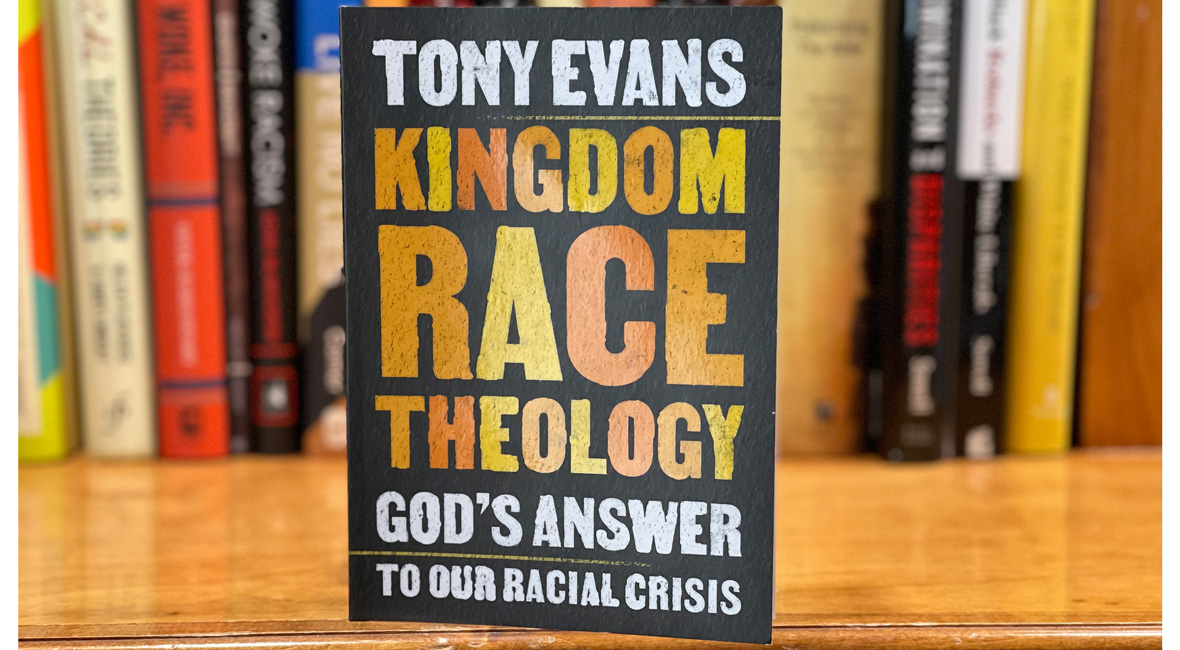Kingdom Race Theology by Tony Evans

Summary of Kingdom Race Theology
Kingdom Race Theology is Tony Evans’ biblical response to the secular, and Marxist, doctrine commonly known as Critical Race Theory. Evans is a “kingdomologist,” which means that his understanding of the Christian faith is centered on the biblical concept of the kingdom of God, which he defines as “the visible manifestation of the comprehensive rule of God.” (11) This little book is a primer on a kingdom approach to race, justice, and the unity of the Church. While he does not unilaterally reject Critical Race Theory, Evans is quick to point out that is both insufficient and divisive, and more importantly, that it is unbiblical. Even so, the Critical Race Theorists may have some good points worth considering, even if the solutions of people like Ibram Kendi and Robin DiAngelo fall short of God’s kingdom standard. The answers of CRT will never work, because “the solutions to the issues we face today are found only by applying a biblical and divine standard as answers to the questions before us.” (7)
Evans is careful to provide clear definitions for terms like racism, systemic racism, biblical justice, and other concepts that tend to get obfuscated in the broader cultural discussion around race. He defines his most important term, Kingdom Race Theology, this way: “The reconciled recognition, affirmation, and celebration of the divinely created ethnic differences through which God displays his multifaceted glory and advances his rule in history. God displays his glory through us while his people justly, righteously, and responsibly function in personal and corporate unity under the lordship of Jesus Christ.” (45) Ephesians 1:10 tells us that God’s will is “to bring unity to all things in heaven and on earth under Christ.” This unity brings glory to God, and like everything God does on earth, is primarily accomplished through human beings. Human beings are created by God with ethnic difference, and therefore God’s will is to work through the variety of human ethnic groups to bring this unity into being, which is for the praise of his glory.
The focus of Kingdom Race Theology is to demonstrate the important connection between biblical justice and the gospel. To accomplish this, Evans distinguishes between the content of the gospel (the death and resurrection of Jesus for our forgiveness and salvation) and the scope of the gospel (the transformation of the person and his relationships through the restoration of human dignity on earth). The gospel both is something and does something, and one of the things that the gospel does is bring about biblical justice on earth. Biblical justice is “the equitable and impartial application of the rule of God’s moral law in society.” (71) Biblical justice is what makes biblical freedom possible, and it is the Church’s responsibility to manifest the freedom that God has provided for humanity in both his moral law and in the gospel. “The Church is God’s authorized kingdom agency that has been given divine authority (i.e. keys of the kingdom) to exercise kingdom authority on God’s behalf in history.” (98)
My Personal Takeaway & Recommendation
Kingdom Race Theology is a very helpful book that succinctly outlines the basics of a biblical understanding of race, and especially of the fraught relations between whites and blacks in America. Evans’ kingdom approach is a welcome respite from the constant drone of divisive, Marxist rhetoric that fills our airwaves and social media streams. His emphasis on the unity of humanity under Christ is the fundamental Christian difference from the oppressor/oppressed dialectic of Critical Race Theory, and is therefore crucial for all Christians to understand as they navigate these turbulent waters. Without ignoring the pain of the past, Evans focuses on what God is trying to accomplish through the Church, which is the most racially and ethnically diverse group of humans on the planet. If we can’t get this unity thing right, and we have Scripture, the Spirit, the will of God, and Jesus himself on our side, what hope can there possibly be for the rest of the world.
In the last chapter of the book, Evans takes the bold step of issuing 14 action points called “What Black Christians Should Do,” followed immediately by 14 action points called “What White Christians Should Do.” These lists are challenging, to say the least, but they are important. When you read the list addressed to people of your melanin-levels, you may feel yourself begin to get defensive. Resist that defensiveness with the understanding that God’s will – the ONE thing he’s trying to do here on earth – is to unite all things in heaven and on earth under Christ. Don’t let your heart build walls of division on the ground where God is trying to unite all the peoples of the earth. Humble yourself and trust that Tony Evans might have some wisdom worth listening to on this subject. That, at least, is what I’m trying to do.
My recommendation of Kingdom Race Theology is strong. This is one of the books that should be spreading through the Church the way that “How to Be an Antiracist” and “White Fragility” have in the past couple of years. While those books may offer some important insights, they are not rooted in Scripture and the kingdom of God the way that Evans’ book is. Kingdom Race Theology is a short and easy read, and I strongly encourage all believers to read through it carefully.

